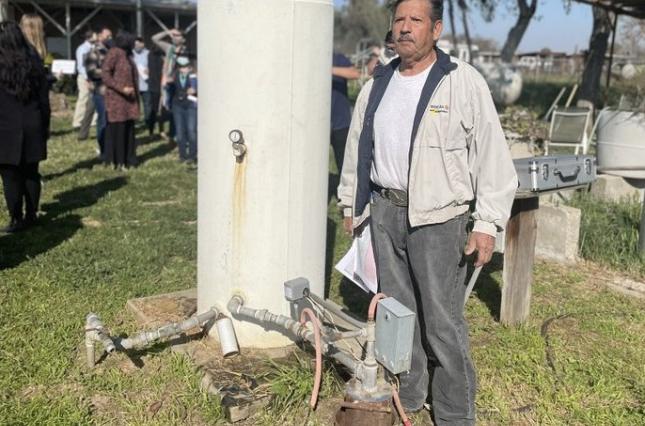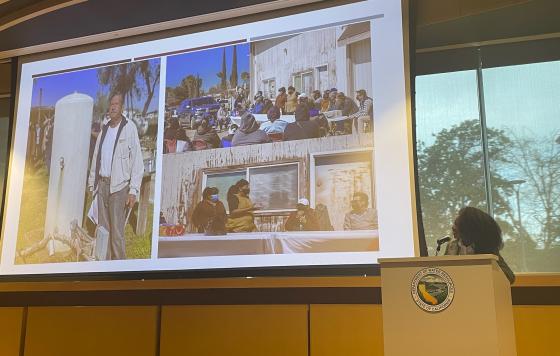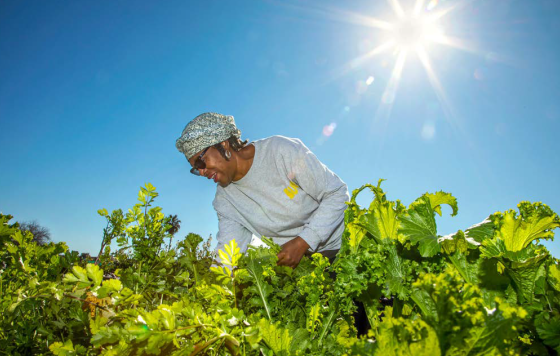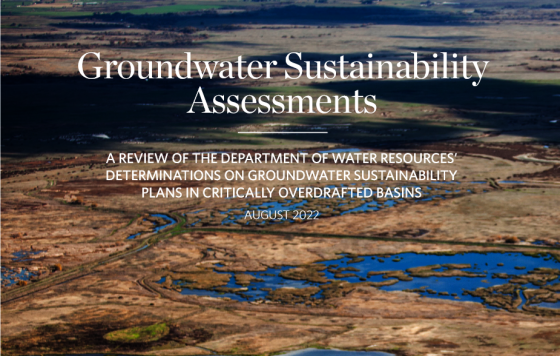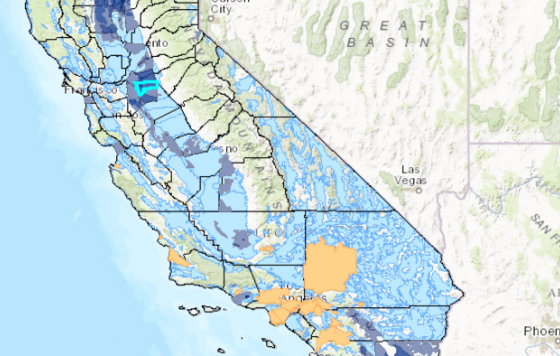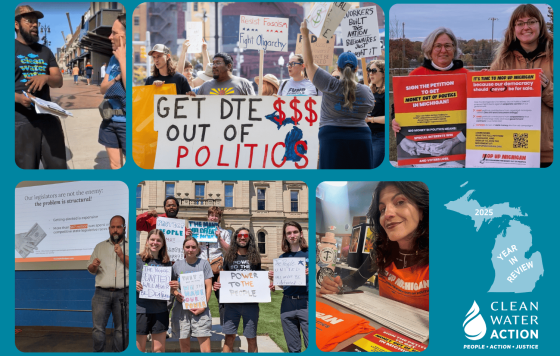From March 5th to the 11th, we’re celebrating National Groundwater Awareness Week by calling attention to the importance of this vital source of drinking water. The issues surrounding groundwater are particularly important to California as we continue to battle a persistent drought. Hundreds of drinking water wells have gone dry, with even more susceptible to the same fate. Eighty-five percent of Californians rely on groundwater for some or all of their water supply.
Because of our leadership in protecting groundwater, Clean Water Action was invited to join the Department of Water Resources in Sacramento on Monday to kick off Groundwater Awareness Week. Our Water Policy Analyst, Ngodoo Atume presented on the importance of engaging and protecting vulnerable communities that depend on groundwater.
"Groundwater is not visible, so sometimes it tends to be forgotten." - Ngodoo Atume
During a typical year, approximately 40 percent of California’s total water supply comes from groundwater, with that number going up to 60 percent or more during dry years. As the extremes of climate and drought become more persistent due to climate change, groundwater serves as a critical buffer against the ever growing impacts of climate change. California’s groundwater basins hold about 20 times as much water as our surface reservoirs.
There have been major steps regarding groundwater on both a state and national level. In 2014 California passed the Sustainable Groundwater Management Act (SGMA) as a step in achieving sustainability to our state’s depleted groundwater reserve, and since then Clean Water Action in collaboration with other environmental justice organizations have worked tirelessly to ensure equity in the implementation of SGMA. Last week, the California Department of Water Resources failed 6 groundwater management plans in the San Joaquin Valley for lack of protection of groundwater users. The State will be taking over management of these plans.
There’s still much work to be done. We will continue to work with the state to ensure that all disadvantaged communities and drinking water users are protected from groundwater decline and contamination. We were pleased to see that Governor Newsom recently signed an executive order requiring all local Groundwater Sustainability Agencies (GSAs) to create and execute plans focused on the equitable distribution of our groundwater.
This week Clean Water Action encourages you to learn more about the issues regarding groundwater so you can join the fight and become an advocate for sustainability in our most precious resource.

